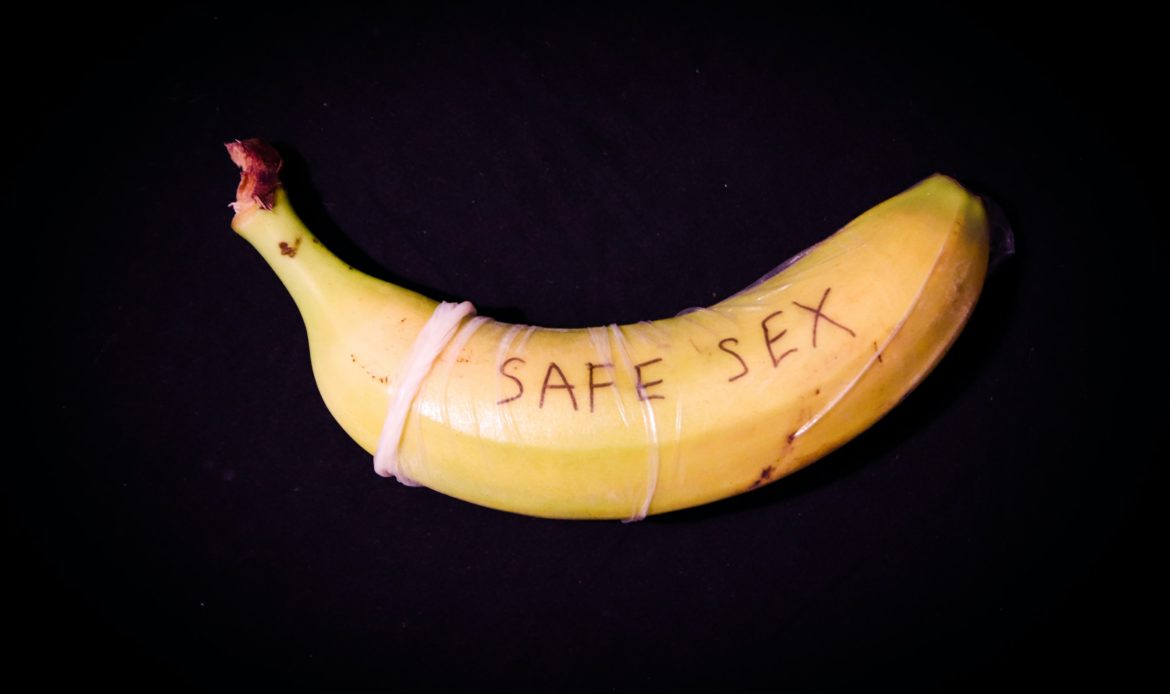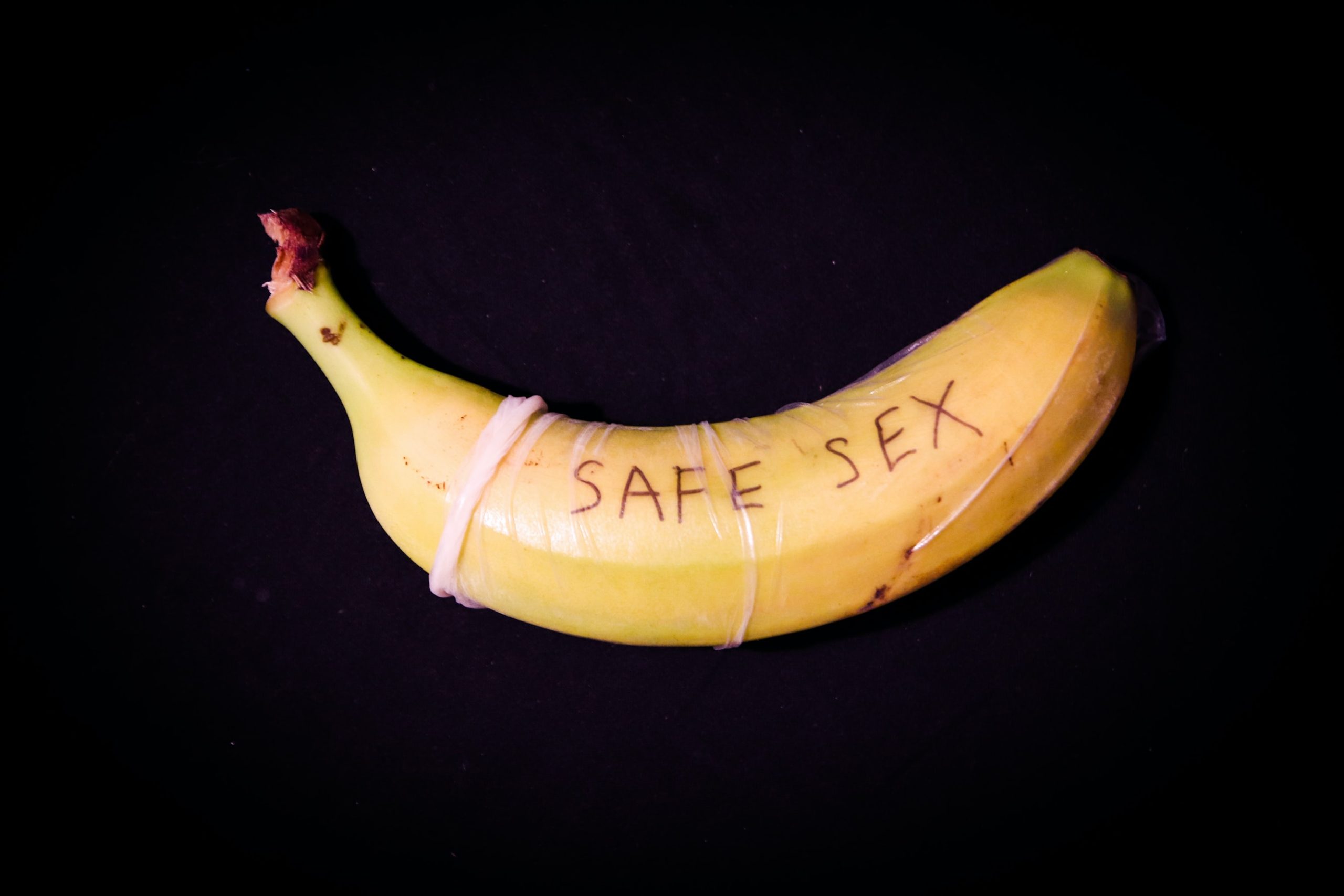Let’s Talk About Sex!

When you hear the word “sex,” your mind probably flashes to scenes from Fifty Shades of Grey or the Riverdale kids going at it like rabbits (seriously, where are the adults on this show?), or Samantha regaling the rest of the girls with her latest exploit on Sex and the City. But contrary to how it’s portrayed in the media, sex isn’t just quickies in the backseat of a car (which is extremely uncomfortable) or the “perfect” fairytale moment where you finally lose your virginity. It can be messy, or romantic, or painful, or all of those things!
The great thing about having sex portrayed in the media is that it normalizes the topic to kids and opens it up for discussion, rather than shrouding it with words like “taboo” and “dirty.” That being said, how does the media influence our attitudes towards sex? How young is “too young” for kids to be exposed to the idea? Do shows like Gossip Girl and Bridgerton set unrealistic expectations for sex and encourage insecurity? In order to find out, I interviewed a random group of students at U of T for their thoughts on sex and the media, and the responses were very revealing.
Interestingly enough, I found that of the students interviewed, about 61% reported always seeing references to sex in the media, with only 33% claiming to see references to sex in the media often, and a measly 5.6% that reported seeing references to sex sometimes. In addition, 50% of participants responded that they had learned about sex between the ages of 9-12. When asked about how they learned about sex, the majority of students responded that they had learned through popular media (i.e. reading books, watching TV and movies) and talking with their friends. Despite learning about sex at what is arguably a young age, around 61% of individuals stated that sex was never actively discussed in their households when growing up, with one participant claiming, “[Sex] wasn’t shamed or discouraged, but it was never explicitly talked about.”
Based on this data alone, it seems as though the only form of sexual education that our generation received was through a silver screen or the pages of a raunchy novel read underneath the covers. With this in mind, you would think that this would have muddled our perceptions of sex or created an idealized version of what sex should be. However, what we find is the exact opposite! When individuals were asked about what they believe sex is or should be, all the responses consisted of positive, healthy interpretations that went beyond a heteronormative lens. For instance, one individual expressed, “Sex can be so many things — exploring your sexuality, self-pleasure, partner sex, etc. Experiencing pleasure or helping another feel pleasure can all count towards sex.” Another participant stated that in their journey to unlearn unrealistic and potentially harmful expectations surrounding sex, they were “avoiding rigid boundaries and letting sex present itself in whatever form feels authentic, safe, and pleasurable.”
In the absence of formal education on the topic of sex, exposure to the subject — even through glimpses of Cosmopolitan or steamy scenes on TV— may have actually allowed kids to learn enough about the topic to be comfortable with it and develop a more sex-positive attitude. “Sex is something that can be amazing and desirable but can also be dangerous depending on the context,” one participant wrote, “Sex is a very vulnerable act, so I believe that sex, as much as it should be pleasurable and exciting and adventurous, etc., it must also be safe and comforting.” As we can see, even though popular media has had a significant influence on our views on sex and sexual identity (according to 55.6% of those surveyed), this hasn’t necessarily been a negative or damaging influence. Being informed no matter what the means is what prevents individuals from making poor choices and putting themselves in harm’s way — not knowing about sex can lead to unsafe sex.
While I can understand the desire of some parents to avoid the ensuing awkwardness of having “the talk” with their kids and their desire to have to think about their child ever having sex, the complete lack of acknowledgement towards the subject and subsequent stigma can do substantially more harm than a ten-year-old hearing a sex joke on Friends. Personally, I find myself relating quite strongly to the experiences described by those surveyed. Growing up as the eldest daughter in an Indian-Canadian family, the word “sex” was never so much as breathed in our house. Likely resulting from a combination of fierce overprotectiveness and millennia of Indian parents that thrived on arranged marriages and shaming any sexual act, my parents never so much as even mentioned dating and sex. In fact, in my almost twenty years of age, I have never actually gotten “the talk.” And while some of you may be laughing uproariously at this or envious of the fact that I never had to sit through my mother attempting to explain to me how to put on a condom, when combined with the fact that the only form of sexual education my highschool provided was a five-minute lecture on abstinence and a phallic object aptly named “Woody,” I would have been completely oblivious to sex had it not been for the media. Being exposed to shows and movies where sex could be casually discussed and reading books and magazines where it was depicted as “healthy” and “normal” helped me to understand and establish my own sexual identity and realize that sex wasn’t something that was “wrong” or “taboo.”
What I’m trying to get at here is that even though it seems as though sex is everywhere we look — in the songs we listen to or the shows we watch — in a society where most parents still (unconsciously or purposefully) condemn the idea of sex when it comes to their own children, these shows and movies and books are useful resources for kids to normalize sex and can potentially obtain a healthy depiction of what sex is.
